The Great Lafayette was the highest-paid magician of the Edwardian era. On May 9th, 1911 he was performing his signature illusion, “The Lion’s Bride,” a hugely popular affair in which a live lion is magically transformed into the magician and then made to re-appear safely in a cage, at the Empire Palace Theatre in Edinburgh (now the Festival Theatre). Midway through the show a fault in one of the stage lights caused a fire. The elaborate set went up in flames within minutes. The audience, thinking that this was all part of the illusion, sat in awe and wonderment and did not evacuate until the theatre manager signaled for the orchestra to play “God Save the King.” Many of the company, however, were trapped on stage when the safety curtain was lowered and jammed, leaving only a small gap at the bottom through which a strong draught of air fanned the flames into an inferno. Lafayette himself had ensured that the side doors to the stage had been secured, both to exclude unwanted interlopers and in case of an escape by the lion.
Ten people died that night including the magician himself.
Why bring this up now? Other than the mere coincidence of this disaster being a century old this year, I’m starting to get the feeling that those of us who take an interest in the political side of professional cycling (and, really, that should be everyone) have become nothing more than the hapless audience at Lafayette’s great tragedy. “Oh look, that man’s head’s on fire!” we yelp. “Isn’t it exciting?! How simply wonderful,” we sigh like the prim, gawping Edwardian ladies we’ve become. And all the while we do absolutely nothing to put the fire out, so enthralled are we by the spectacle itself.
On Twitter recently I lamented the dearth of investigative journalism in cycling. Joe Papp replied, dryly, that there wasn’t “enough JOURNALISM in cycling.” Period. I wouldn’t go quite that far as I think there are some excellent journalists covering cycling, but I don’t think there are many willing to get their hands dirty.
Lionel Birnie from Cycling Weekly said on Twitter that the wording of Gerard Vroomen’s recent blog post was irresponsible and that bloggers should be held to the same standards as journalists. I wholeheartedly agree with that. Blog posts can often be about shooting from the hip, publicly asking questions, or stating a point of view. All of which are fine and dandy, but it must be clear that what you are writing falls into one of those categories. Vroomen simply didn’t do that. He said he hadn’t heard of tests being done during the period in question but didn’t check to see if this was actually the case or not. And for someone in his position, who is perceived to be on the inside, this is dangerous.
I’m not saying that Vroomen isn’t actually pointing to very real flames that are licking up the side of the building, but by saying “I’ve heard there might be a fire,” he lets the UCI off the hook with their “No there isn’t, because we said so!” press release that gives him a public slap on the wrist and we all go back to watching the Great Lafayette and his simply marvelous stage show.
The problem I believe journalists have, as opposed to bloggers, is exactly the same problem that the teams and riders have when considering pointing out unfair treatment, conflicts of interest or any of the other goings-on in Aigle. At the back of their minds are concerns over commercial interest. Teams need sponsors to give riders jobs just as much as cycling magazines and websites need sponsors in order to hire journalists. Journalists also need access to do what they do. Rock the boat too much and the wagons circle and your editor starts wondering why you can’t get that interview with Pat McQuaid that he/she wants for the next week. Do the names Paul Kimmage and David Walsh ring any bells here?
But it doesn’t have to be like this. The Guardian newspaper has consistently been at the centre of the News International phone hacking scandal which may yet bring down a multi-billion dollar organisation. Probably the most famous case of investigative journalism is when two low-level reporters from the Washington Post, Carl Bernstein and Bob Woodward, managed to bring down a President of the United States over the Watergate scandal.
This post, however, is not solely about the dearth of investigative journalism in cycling. As I say, it’s about all of us sitting here watching the inferno and being nothing but entranced by it.
Let’s be clear – the UCI and Pat McQuaid do not care what you or I think. They don’t even care about what the riders or the teams think. Dario Coni is one of the rider representatives on the Professional Cycling Council. In an interview with VeloNews earlier this year he felt the riders had a “limited voice” and that most of the decisions were made when the riders reps are not in the room. Kudos to VN for publishing the interview but it seems nothing was done with that information. The UCI, as far as I can tell, were not even asked to comment.
Even when the riders and team representatives do start to complain, for example, over the issue of the race radios ban, all McQuaid has to do is bar them from the PCC meeting.
The reason Pat McQuaid can do this is that he is not beholden to the teams, the riders, nor the fans of the sport for his position. They don’t pay his salary and they (we) don’t have a voice when it comes to his re-election.
Those who do are The Congress of 42 cycling official delegates from around the world. They voted him in, at the behest of previous incumbent Hein Verbruggen in 2005, re-elected him in 2009, and there is nothing to suggest that come the next election in 2013, they won’t do so again. The job is his for as long as Pat McQuaid wants it and there is very little that anyone can do about it.
I say very little, so it’s not impossible. According to their annual report, the UCI made 11,334,064 CHF in 2009 from the World Championships – their biggest source of income by far. (An aside: the 2010 annual report has not been published on the UCI website. I’ve been told that this cannot be done until after the next meeting of the Congress which will take place in Copenhagen on September 23rd, 2011). I cannot envisage the circumstances in which the World Championships would be boycotted.
But hitting McQuaid where it hurts – in his wallet (and increasingly it is his wallet) – would certainly make the Congress sit up and take notice.
The circumstances which have brought about the Tour of Beijing – a tour which is being organized by a private company that members of the UCI (including McQuaid) own – is a massive conflict of interest.
Of course a boycott of the newly-installed Tour of Beijing has been threatened over the race radio ban. It’s easy to see how this could be construed as a smokescreen and is a convenient way of leveraging more power within the UCI for the teams association, AIGCP and the riders CPA.
My feeling is that this is, ultimately, pointless. The UCI needs root and branch reform, not the picking of a few leaves and twigs somewhere near the bottom of the tree.
I urge Jonathan Vaughters, as President of the AIGCP and Gianni Bugno, as President of the CPA, to use the proposed boycott of the Tour of Beijing as a call for a motion of no confidence in Pat McQuaid.
The Congress, as I said earlier, next meets on September the 23rd. We have the chance to shout “Fire!” Can we please use it and stop giggling at the spectacle of the house burning down all around us?


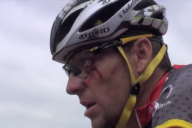






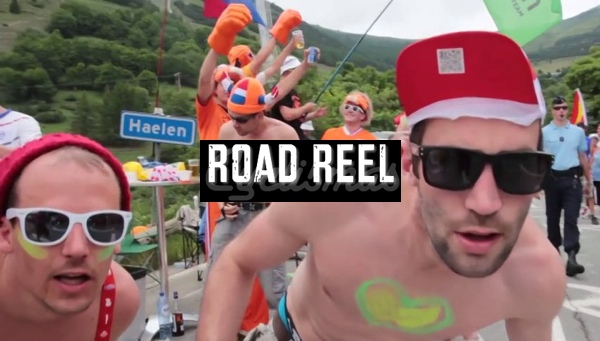
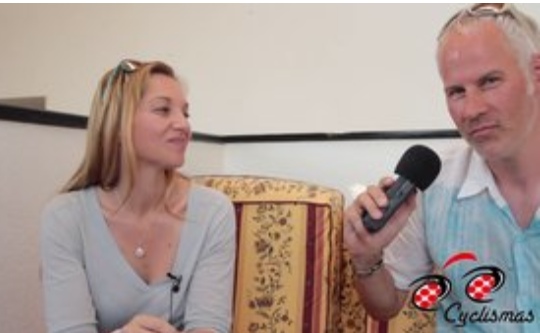
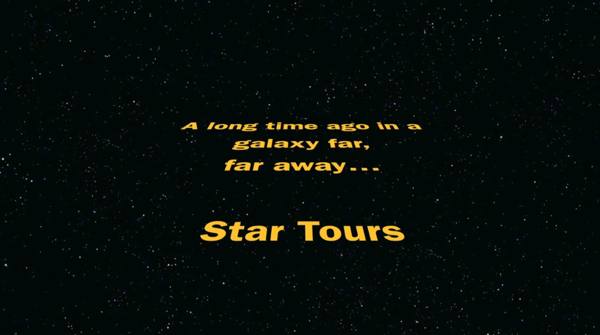
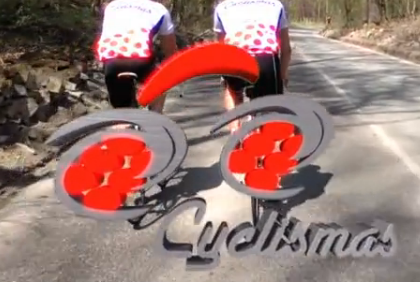

3 Comments
A good starting point for investigative journalism would be to publish a complete diagram for money in cycling, and where it comes from and where it goes. UCI, ASO, IOC, sponsors, teams, riders, televison coverage, WADA, L’Equipe, national federations, national anti-doping programs, various powerful individuals.
They all play a role. Seeing how much money flows and where would be useful even to the most experienced cycling fans.
tom
@thomasafine I don’t know if I agree, Thomas. Sponsors and teams are under no obligation to reveal the terms of their business dealings, as far as I can see. Also, riders salaries, like in any other job, shouldn’t have to be made public. I don’t know how you would feel if there was an obligation for your salary to be made public at your place of work.
However, where I absolutely do agree with you is when it comes to the UCI, IOC, WADA and national federations. These public bodies have a duty to publish their dealings.
As I say in the article, the 2010 UCI annual report is due to be published after the next meeting of the Congress on September 21st. I’m sure it will make for interesting reading.
@velocast I’m not asking how much Cavendish makes, I’m asking what a team budget looks like. Ultimately, out of all the TV and sponsor money, what percentage trickles down to the rider level? This is clearly one of the most important questions out there.
My other really big question in all of this, is how much does ASO control? My belief is that they have a stranglehold on most of the TV money in the sport, which is of course most of the money in the sport. Only an overall analysis could show whether or not that is true. If we spend our time in a pissing match with the UCI, when we should be looking more at ASO, then we’re just spinning our wheels.
Even if we can’t get perfect information, someone should try. Do teams have to submit budgets? Is any of that information available? Are there at least minimums that have to be met, so we can guess? Are any owners willing to discuss what a team budget looks like, at least in general terms?
Also, I knew I’d leave out some groups. Race promoters (other than ASO) are one big one that I missed.
tom